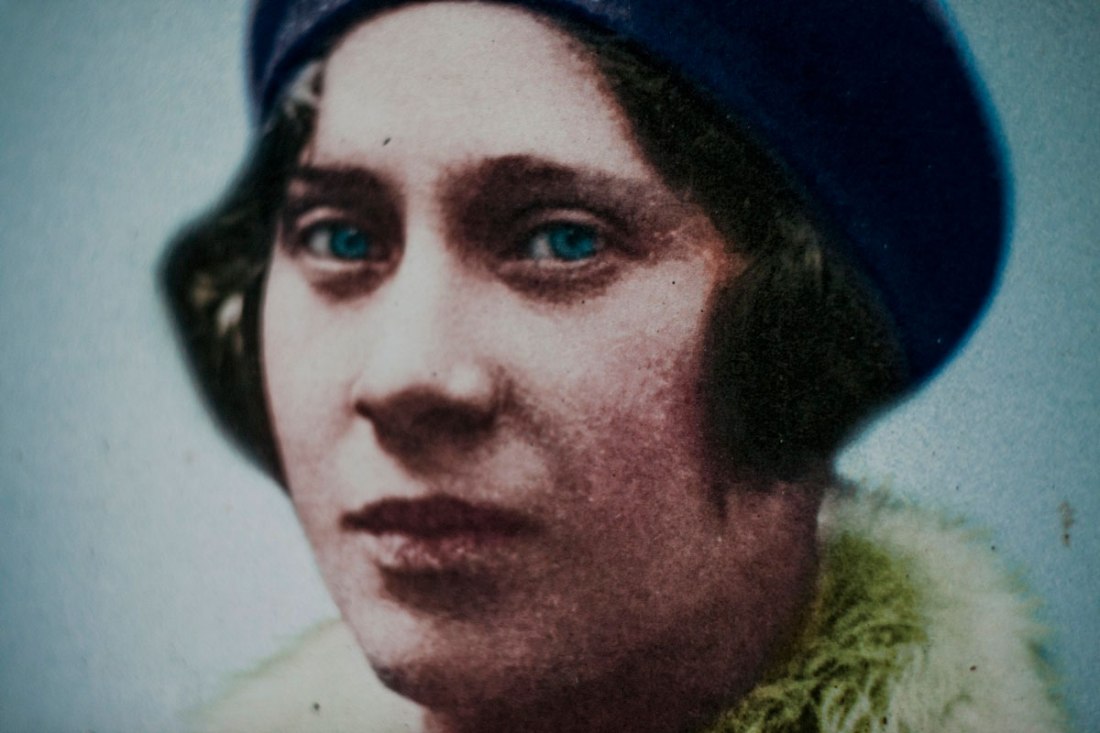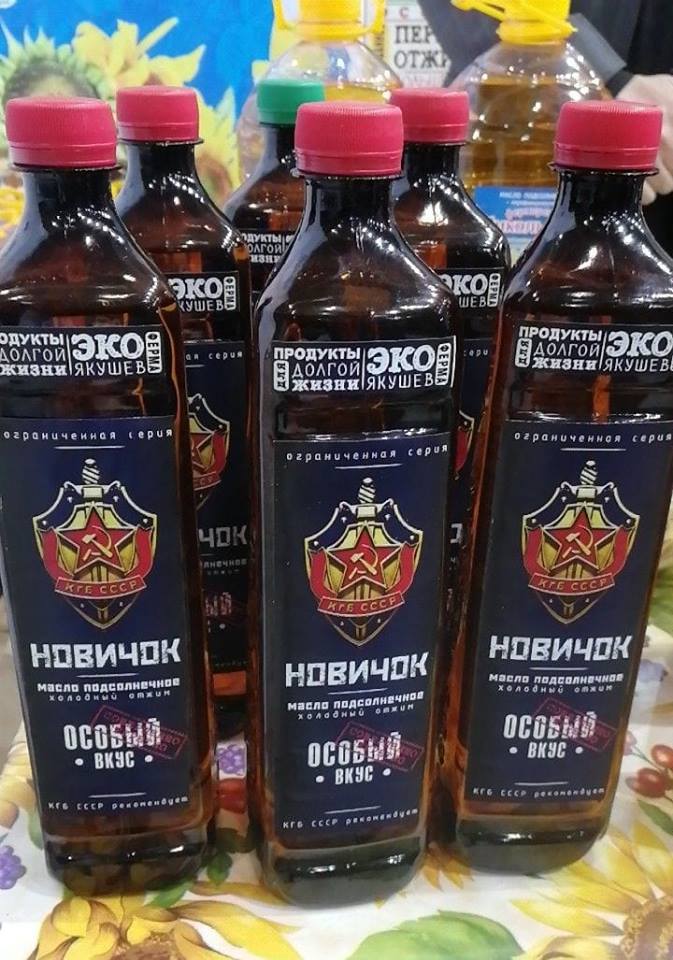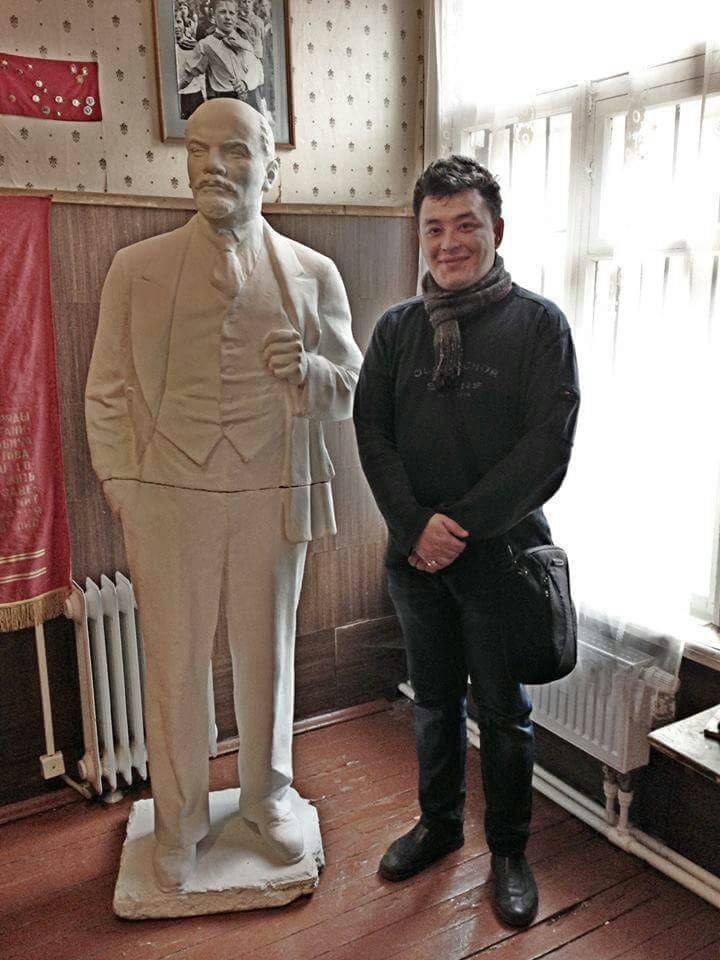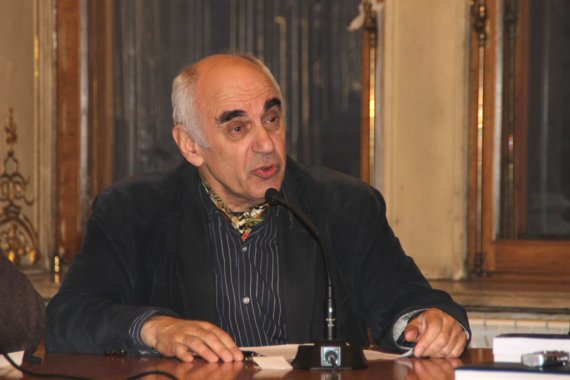The Public Execution of the Historian Dmitriev
Igor Yakovenko’s Blog
September 30, 2020
Three days before the Karelian Supreme Court handed down its ruling in the “case” of the historian Yuri Dmitriev, the program “Vesti” on state TV channel Rossiya 24 ran a segment in which “shocking pictures” of Dmitriev’s foster daughter were aired. The voice of reporter Olga Zhurenkova shook with anger as she said that “hundreds of Internet users were shocked by these terrible pictures that appeared on the Internet on the morning of September 26,” that “the Internet is boiling with indignation” at this monster who “ruined a child’s life.” The security services got into Dmitriev’s computer and pulled out photos of his foster daughter. Then the security services leaked these photos to the Internet for thousands to see. After that, Rossiya 24 showed them on TV to millions. And they also showed a video in which the foster daughter hugs Dmitriev: the girl can clearly be identified in the video, and just to make sure, Rossiya 24’s reporters called her by name.
This goes to the question of who actually ruined the child’s life and why they did it.
Rossiya 24’s handiwork lasts 4 minutes, 48 seconds. The state channel’s reporters managed to pack into this amount of time all the hatred that the ideological heirs of Stalin’s executioners feel towards the man who for many years studied and presented to the public the traces of the latter’s crimes. In all his previous trials, Dmitriev and his defense team managed to fully prove his innocence. And the prosecutors were well aware that he was innocent, so to concoct and pass a monstrous sentence on him, they recreated the ambiance of the show trials during the Great Terror. Back then, the “people’s anger” was fueled by newspaper articles, demonstrations outside the courtroom, and meetings at factories where shockworkers demanded that the Trotskyite-fascist Judases be shot like mad dogs. Now, in the third decade of the 21st century, the Internet and TV organize the “people’s anger.”
The appeals hearing in Dmitriev’s case was orchestrated like a special military operation whose goal was to prevent the human rights defender from getting out of prison alive. To accomplish this, in addition to organizing the “people’s anger,” the authorities virtually deprived Dmitriev of legal counsel. His lead defense attorney, Viktor Anufriev, was quarantined on suspicion of having the coronavirus, while the court-appointed lawyer said that it was a mockery to expect him to review the nineteen volumes of the case file in three days. Despite the fact that Anufriev petitioned to postpone the hearing for a specific period after his release from quarantine, and Dmitriev declined the services of the court-appointed lawyers, the court, contrary to normal practice, refused to postpone the hearing, and so Dmitriev was left virtually with no legal representation.
Yuri Dmitriev’s work touched a very sensitive chord in the collective soul of Russia’s current bosses, who see themselves as the direct heirs of those who organized the Great Terror, which, they are firmly convinced, is a purely internal matter of the “new nobility.” It is virtually a family secret. They believe that Dmitriev—who not only investigated the mass murders at the Sandarmokh killing field, but also invited foreign journalists there and published lists of those who were killed—is a traitor who deserves to die.
Moreover, the Dmitriev case has come to embody one of the most important amendments to the Constitution of the Russian Federation adopted this past summer. Namely, the new Article 67.1, which establishes a completely monstrous norm: “The Russian Federation honors the memory of the defenders of the Fatherland [and] ensures the protection of historical truth.” In other words, the task of protecting the “historical truth” is assumed not by historians, but by the state, that is, by the apparatus of violence and coercion.
In fact, the Dmitriev case has been a demonstrative act of “historical truth enforcement.”
The fact is that on the eve of Dmitriev’s trial, members of the Russian Military History Society attempted to write a “correct history” of the killing field in Sandarmokh. They dug up mass graves and hauled away bags of the remains for “forensic examination,” subsequently that they were Soviet soldiers who had been shot by the Finnish invaders.
There should be no blank or black spots in the history of the Fatherland: everything should shine with cleanliness, resound with military exploits and feats of labor, and smell of patriotism. To this end, MP Alexei Zhuravlyov—the man who recently told Russian TV viewers that Europe has brothels for zoophiles where you can rape a turtle—introduced a bill under which you could get three years in prison for “distorting history.” To Zhuravlyov’s great disappointment, his legislative initiative was not appreciated.
And really, why send someone down for three years for promoting “incorrect history,” when you can send them to a maximum security penal colony for thirteen years, which for the 64-year-old human rights activist is tantamount to a death sentence. It was this verdict that was issued by the Karelian Supreme Court by order of the heirs of those who organized the Great Terror.
Translated by the Russian Reader
 Yuri Dmitriev. Photo by Igor Podgorny/TASS. Courtesy of the Moscow Times
Yuri Dmitriev. Photo by Igor Podgorny/TASS. Courtesy of the Moscow Times
Prominent Gulag Historian’s 3.5-Year Prison Sentence Lengthened to 13 Years
Moscow Times
September 29, 2020
A Russian court has lengthened the term prominent Gulag historian Yuri Dmitriev must serve in prison to 13 years, the Mediazona news website reported Tuesday, a surprise increase of a lenient sentence for charges his allies say were trumped up to silence him.
Dmitriev was sentenced to 3.5 years in prison in July after a city court in northwestern Russia found him guilty of sexually assaulting his adopted [sic] daughter, a ruling his supporters viewed as a victory given the 15 years requested by prosecutors.
The Supreme Court of the Republic of Karelia overturned that ruling and sentenced him to 13 years in a maximum-security penal colony, Mediazona reported, citing the lawyer of Dmitriev’s adopted [sic] daughter.
Under his previous sentence, Dmitriev, 64, would have been released in November as his time already served in pre-trial detention counted toward his sentence.
Human rights advocates condemned the Karelia Supreme Court’s ruling, calling it a “shame.”
Dmitriev has vehemently denied the charges against him.
The head of the Memorial human rights group’s Karelia branch, Dmitriev is known for helping open the Sandarmokh memorial to the thousands of victims murdered there during Stalin-era political repressions in 1937 and 1938.
 The Yellow Submarine’s log book. Image courtesy of Felix and Marina Vinogradov
The Yellow Submarine’s log book. Image courtesy of Felix and Marina Vinogradov  Alexander Skobov and Felix Vinogradov outside the Leningrad University history department, circa 1976–1977. Photo courtesy of the Iofe Foundation
Alexander Skobov and Felix Vinogradov outside the Leningrad University history department, circa 1976–1977. Photo courtesy of the Iofe Foundation Felix Vinogradov, Seal of the Yellow Submarine commune, 1977. Image courtesy of Felix and Maria Vinogradov
Felix Vinogradov, Seal of the Yellow Submarine commune, 1977. Image courtesy of Felix and Maria Vinogradov Alexander Skobov, Tatiana Komarova, and Felix Vinogradov, 1977. Photo courtesy of Felix and Marina Vinogradov
Alexander Skobov, Tatiana Komarova, and Felix Vinogradov, 1977. Photo courtesy of Felix and Marina Vinogradov Name unknown. The need to combat “enemies of the people” was based on the notion that, as the class struggle intensified, new “class enemies” emerged, including so-called counter-revolutionaries, wreckers, spies, and saboteurs. They were punished under Article 58 of the RSFSR Criminal Code. The term “enemy of the people” was not only a cliché of political rhetoric but was also used in official documents.
Name unknown. The need to combat “enemies of the people” was based on the notion that, as the class struggle intensified, new “class enemies” emerged, including so-called counter-revolutionaries, wreckers, spies, and saboteurs. They were punished under Article 58 of the RSFSR Criminal Code. The term “enemy of the people” was not only a cliché of political rhetoric but was also used in official documents. Karl Davidovich Ozol, died at the age of 42. Born in Wenden (
Karl Davidovich Ozol, died at the age of 42. Born in Wenden ( Names unknown
Names unknown Anna Alexandrovna Kolupayeva, died at the age of 33. An ethnic Russian, she was born and lived in Petersburg, and was a member of the All-Union Communist Party (Bolsheviks) from 1929 to 1937. She worked as an accountant for Eksportles (All-Union Association for Timber Exports). Her home address was
Anna Alexandrovna Kolupayeva, died at the age of 33. An ethnic Russian, she was born and lived in Petersburg, and was a member of the All-Union Communist Party (Bolsheviks) from 1929 to 1937. She worked as an accountant for Eksportles (All-Union Association for Timber Exports). Her home address was  Veniamin Ilyich Baraden, died at the age of 46. An ethnic Russian born in Petersburg, he was a non-Party member. He worked as a legal consultant at the
Veniamin Ilyich Baraden, died at the age of 46. An ethnic Russian born in Petersburg, he was a non-Party member. He worked as a legal consultant at the  Nikolai Mikhailovich Makarov, died at the age of 44. Born in the village of Ivakino in the Rostov District of Yaroslavl Province, he was an ethnic Russian, a member of the All-Union Communist Party (Bolsheviks), and secretary of the Party committee at the Institute of the Arctic. He resided at
Nikolai Mikhailovich Makarov, died at the age of 44. Born in the village of Ivakino in the Rostov District of Yaroslavl Province, he was an ethnic Russian, a member of the All-Union Communist Party (Bolsheviks), and secretary of the Party committee at the Institute of the Arctic. He resided at  Name unknown
Name unknown Name unknown
Name unknown Name unknown
Name unknown Herbert Karlovich Hesse, died at the age of 40. A native and resident of Petersburg, Hesse was an ethnic German who received his higher education at Tomsk University. In 1919, while still a university student, he was drafted into the army of
Herbert Karlovich Hesse, died at the age of 40. A native and resident of Petersburg, Hesse was an ethnic German who received his higher education at Tomsk University. In 1919, while still a university student, he was drafted into the army of  August Ernestovich Egleskaln, died at the age of 34. Born in the Berezovo Rural Society (Atheist Collective Farm), Valdai District, Novgorod Province, Egleskaln was an ethnic Latvian who was expelled from the Bolshevik Party in 1935. He worked as head of the cable recovery united of the 2nd Communications Regiment of the Leningrad Military District. Arrested on November 5, 1937, Egleskaln was found guilty of violating Article 58.6 of the RSFSR Criminal Code by an NKVD commission and the Soviet Prosecutor’s Office and sentenced to death. He was executed in Leningrad on January 5, 1938. His place of burial is unknown. Egleskaln was exonerated in 1957.
August Ernestovich Egleskaln, died at the age of 34. Born in the Berezovo Rural Society (Atheist Collective Farm), Valdai District, Novgorod Province, Egleskaln was an ethnic Latvian who was expelled from the Bolshevik Party in 1935. He worked as head of the cable recovery united of the 2nd Communications Regiment of the Leningrad Military District. Arrested on November 5, 1937, Egleskaln was found guilty of violating Article 58.6 of the RSFSR Criminal Code by an NKVD commission and the Soviet Prosecutor’s Office and sentenced to death. He was executed in Leningrad on January 5, 1938. His place of burial is unknown. Egleskaln was exonerated in 1957.
 Mikhail Benyash. Courtesy of Andrey Loshak’s Facebook page
Mikhail Benyash. Courtesy of Andrey Loshak’s Facebook page


 Evgeny Shtorn. Photo from his personal archives
Evgeny Shtorn. Photo from his personal archives

